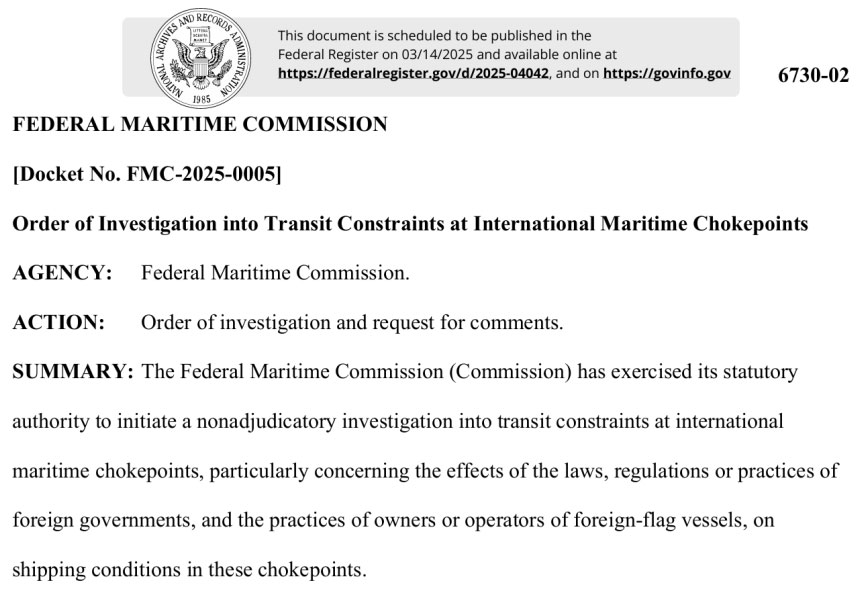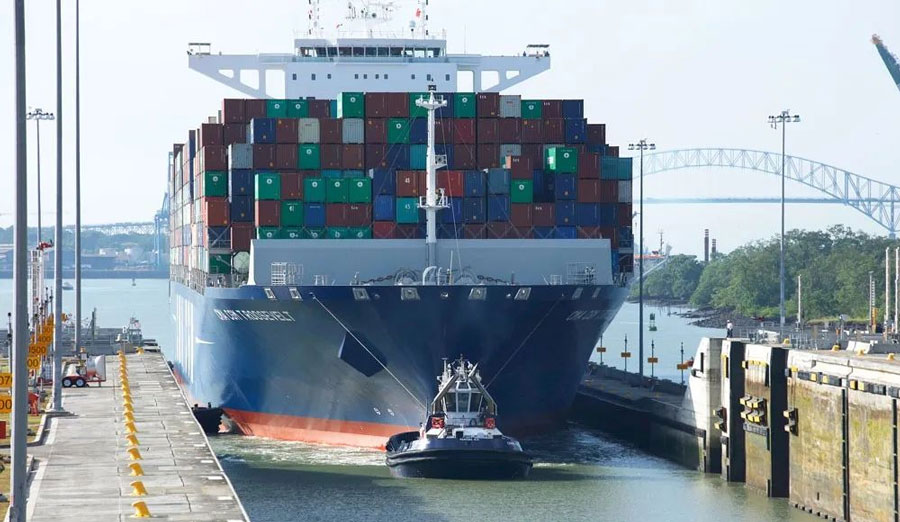


The US government seems to think that the situation in the port and shipping industry is not chaotic enough, recently, the US Federal Maritime Commission (FMC) announced a non-judicial investigation of the global shipping arteries to assess whether other countries, shipping companies or shipping operators will be detrimental to US shipping, and said that it may ban the entry of ships flying the flag of the relevant countries.
The FMC is an independent agency of the U.S. federal government that regulates the U.S. international maritime transportation system for the benefit of U.S. importers and exporters and consumers. In recent years, with frequent disruptions in the maritime supply chain, FMC has increasingly appeared as an arbitrator in disputes between shipping companies and cargo owners. One of the FMC's regulations, however, is that it has the authority to take action when foreign governments or business practices are detrimental to U.S. foreign shipping trade. The FMC, which rarely uses this power, suddenly launched an investigation.
In the survey, FMC listed seven major shipping routes, including the English Channel, the Strait of Malacca, the Northern Sea Route, the Singapore Strait, the Panama Canal, the Strait of Gibraltar and the Suez Canal. The FMC said recent incidents showed that access restrictions on these key roads prompted the FMC to investigate.

The FMC listed risk factors for seven major shipping routes, of which the Panama Canal was the most detailed, and specifically said that when foreign governments' practices are detrimental to U.S. foreign trade shipping, the FMC's remedies include prohibiting ships registered in the relevant country from entering U.S. ports.
After Trump took office, he vowed to reclaim the Panama Canal, and under political pressure, the Panamanian government conducted an audit of Hutchison Ports Panama. Recently, Hutchison Ports sold an 80% stake to a consortium of US funds (BlackRock Group) and MSC, which was supported by the US government. However, the United States may be more than that, before being overtaken by Liberia, Panama held the world's largest flag state for 20 years, which is also targeted by the United States.
Not just Panama, but other countries and shipping companies are also within range. The FMC said it would seek comments over the next 60 days, including on the extent to which restrictions on access to these arteries were influenced by foreign governments, ship owners or operators flying foreign flags.
Lauren Beagen, a former FMC attorney, said FMC's remedies could include a $1 million fee per voyage, restrictions on shipping companies' participation in agreements filed with FMC (such as shipping alliances), and blocking foreign-flagged ships from entering U.S. ports.

In recent years, the United States has put forward a number of measures against the port and shipping industry, and after Trump came to power, he frequently threw out policies that made the industry a huge shock, including imposing tariffs, conducting 301 investigations on China's maritime sector, and so on, in order to revitalize the domestic industry, restore the status of maritime power and weaken China's influence. These policies have a clear "America first" characteristics, and mainly punitive measures, there will indeed be some positive feedback in the short term, such as Mitsui, Konecrony announced the construction of port machinery in the United States, CMA CGM in the United States port and shipping investment of 20 billion US dollars, but in the long run will only destroy the port and shipping ecology, and is not conducive to the United States shipping trade.
These policies may not form a good linkage, for example, cracking down on Chinese shipbuilding cannot boost the US shipbuilding industry, and more shipbuilding does not mean that it will become a flag power, such as South Korea's flag ships only account for 0.9% of the global ship tonnage.
China and South Korea are shipbuilding countries, and Panama and Liberia are flag countries, which is the result of marketization and government incentives. In the global division of labor, some countries have lower manufacturing or other costs, coupled with relevant incentive policies, and are more competitive for shipping companies, forming a strong position.
Shipping companies prefer carrots to sticks, incentives rather than penalties, and when penalties may be imposed, shipping companies will avoid or pass on risks. For example, if port fees are imposed on Chinese-made ships, shipping companies will adjust their ships, reduce calls to US ports or reduce routes, or pass the relevant costs on to shippers, which will inevitably hit US import and export trade. Many small and midsize U.S. carriers or operators of dry bulk terminals say the policy could put them out of business, wreak havoc on the U.S. economy and the global shipping industry.
In fact, when other countries want to make a difference in the maritime field, it is mainly supportive policies. The United States, on the other hand, wants to challenge and even change the basic rules of the industry, which will only bring more uncertainty. The US may need pragmatic policy makers who understand ports and shipping, not a showman leader sitting in an office patting his head.





